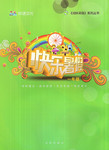题目内容
Second Life is a 3D, online world in which computer users can create a new self and live a different life. Second Life is one of the most popular new online games.
But unlike other games, Second Life is not about winning or losing. Second Life is technically a computer game. But people involved in it do not consider it a game because the players create everything. Second Life is more for socializing and creating communities.
Users of Second Life are called residents. To take part, they must create an avatar, or an electronic image of themselves. Some avatars look like humans, while others look like animals or imaginary creatures.
Inside the Second Life world, residents live in different versions of themselves. They build homes, run businesses, buy and sell things, work, play, and attend school. They even have relationships and get married.
Second Life was created in 2003 by Linden Lab in San Francisco, California. Linden Lab controls the Website where the ever-changing world is being created. There are now about one million people around the world who are active in Second Life. The number has grown quickly since the beginning of the year when there were about one hundred thousand users.
The average age of people involved with Second Life is about thirty. However, Linden Lab recently created Teen Second Life for younger users. Second Life has its own economy and its own money, called Linden dollars.
Millions of dollars are made and spent each month in Second Life. Users can enter Second Life for free. But they must pay for a membership if they want to own land or buy and sell goods and services.
Recently, several major companies have become involved with Second Life. They wanted to be part of the growing business world that exists within the made-up reality.
1. What’s special about the game “Second Life”?
A. It’s a game about losing and winning.
B. It creates everything in life.
C. It benefits one’s abilities to socialize and create.
D. It is simply a popular game to kill time.
2. What does the underlined word “avatar” mean?
A. An instrument someone uses. B. A picture someone takes.
C. An imaginary identity of someone. D. A weapon used in Second Life.
3. Which is NOT true about the game “Second Life”?
A. A resident in Second Life lives a life somewhat like that of real life.
B. The number of users of Second Life is about ten times as large as that of 2003.
C. You can’t enter Second Life until you pay for the entrance fee.
D. To own possessions, a resident has to pay to be a member of Second Life.
4. Why do some big companies want to join in Second Life?
A. They want to experience life in the made-up reality.
B. They want to promote their products more widely.
C. The want to be a member of Second Life.
D. They want to build agencies in Second Life.
C
C
C
B
【解析】

 欣语文化快乐暑假沈阳出版社系列答案
欣语文化快乐暑假沈阳出版社系列答案Switzerland is the best place to be born in the world in 2013,and the US is just 16th. A new study made by the Economist Intelligence Unit says American babies will have a dimmer(暗淡)future than those born in Hong Kong,Ireland and even Canada. The EIU,a sister company of The Economist,tried to measure how well countries will provide the best opportunities for a healthy,safe and prosperous life in years to come.
People born in Switzerland will tend to be the happiest and have the best quality of life in terms of wealth,health and trust in public institutions,according to the analysis. The Scandinavian countries of Norway,Sweden and Denmark also all make the top five in a‘quality-of-lif e’index(指数)where it is best to be born next year.
One of the most important factors is being rich,but other factors come into play including crime,trust in public institutions and the health of family life. In total,the index takes into account 11 factors. These include fixed factors such as geography,others that change slowly over time such as demography (人口学) social and cultural characteristics, and the state of the world economy. The index also looks at income per head in 2030,which is roughly when children born in 2013 will reach adulthood. Small economies take up the top 10 countries,with Australia coming second and New Zealand and the Netherlands not too far behind.
Half of the top 10 countries are European,but only one,the Netherlands,is from the eurozone. The crisis-ridden south of Europe,including Greece,Portugal and Spain,falls behind despite the advantage of a favourable climate. Interestingly,the largest European economies-Germany,France and Britain-do not do particularly well. Nigeria has the unenviable(不值得羡慕的)title of being the worst country for a baby to enter the world in 2013.
【小题1】According to the passage,the happiest people live in ·
| A.Denmark | B.Switzerland | C.Germany | D.Nigeria |
| A.economy | B.geography |
| C.trust in public institutions | D.pollution |
| A.The Economist Intelligence Unit is a company. |
| B.The Economist attempted to measure the best place to live. |
| C.The Scandinavian countries are hardly at the top of the list. |
| D.Half of the top 10 countries are from the eurozone. |
| A.the best place to be born in 2013 |
| B.a new study made by the EIU |
| C.the worst country to be born in 2013 |
| D.the factors of measuring the best place to be born |